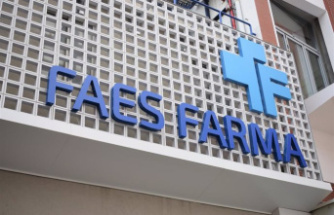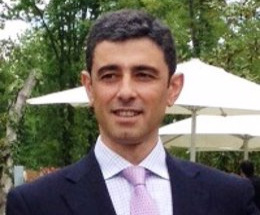For years, local townships and boroughs have watched as Pennsylvania legislators proposed charging municipalities that have full-time state police coverage.
Every year, it seemed the bills or proposals were voted down or fizzled out.
That changed last week, when Gov. Tom Wolf announced he's pushing to establish a $25 per resident service fee for municipalities that don't have their own police departments.
The governor is looking to raise about $63 million to help pay for state police coverage for the 2.5 million Pennsylvanians in those municipalities.
Lehigh Valley officials said the move by the governor's office is different than previous proposals, and the fee may actually come to fruition this time.
But, they says the $25 fee is a bargain for top-notch service from state police troopers.
"Right now, I'm extremely happy with the state police. They provide us very good service. I think they're trained very well. We have a very good relationship with them," said North Whitehall Township Manager Jeff Bartlett. "Everybody pays state taxes. Every municipality benefits from state police."
Bartlett previously worked for several different municipalities, and has experience with the "God-awful costs" of paying for a police department. Bristol Township in Bucks County had 50 sworn officers and a budget of $12 million, out of the township's $21 million annual budget, Bartlett said.
"A lot of people don't understand the hidden costs," of running a police department, Bartlett added, including funding pensions for retired officers.
MORE: The highest-paid police chiefs in the Lehigh Valley
Lower Macungie Township knows the sticker shock all too well, following a 2013 police service study.
The study projected it would cost the Lehigh County township between $4 million and $5 million annually for its own police department -- not including the seven-figure startup costs.
"The findings of that study are still generally the same," said Ron Beitler, a Lower Macungie commissioner. "We were very safe, and I think that's still the case. Most residents think state police do a good job."
East Allen Township in Northampton County hasn't thought about creating its own police department because it's too small, said Deborah Seiple, East Allen's township manager.
From time-to-time, Colonial Regional Police Department has checked to see if the township would like to join the regional department, Seiple said. Colonial Regional was formed in 1995 and its 24 officers cover Hanover Township, Lower Nazareth Township and Bath in Northampton County.
But East Allen's board of supervisors has always decided to stick with the state police, Seiple said. She served on the board of supervisors for 16 years, and grew up in the township.
The issue of state police funding keeps coming up, though, and " I think it will eventually have to be dealt with," Seiple added. "There's not a simple solution."
Hanover Township in Lehigh County is in the same boat. With about 1,700 residents, it's too small to have its own police department, said Bruce Paulus, chairman of the township council.
But that's what led to the creation of the state police, to provide coverage to smaller municipalities, he added.
"If (the fee) happens, it happens. Certainly we're not gong to get our own department," Paulus said.
A fraction of what other municipalities pay
The Associated Press reports Wolf's $25 figure is a fraction of what municipalities pay for local police departments.
About 950 municipalities reported spending $230 per person on local police in 2014, the AP reports, based on data provided by Wolf's administration.
PennLive.com created a database to allow residents to see how much their respective municipalities would pay under Wolf's proposal. You can search the database here.
In Lehigh County, Lower Macungie would pay the most of the nine townships covered by state police, close to $791,000 in the first year for its 31,639 residents.
North Whitehall Township follows with $401,575.
In Northampton County, Upper Mount Bethel Township tops the county's list of seven municipalities that would pay the fee, at $170,875 a year.
In comparison, Hempfield Township, a Pittsburgh suburb, is the largest municipality that uses full-time state police coverage, and would pay about $1 million to the state under the proposed fee.
Bracing for an expected increase
The most talked about issue for officials was what happens once the fee is established.
"I think that's a concern with any fee or mandate -- It's never gonna go away and it's never gonna go down," Beitler said. "$25 is still steal."
Beitler noted the proposed fee wouldn't cover all the costs for state police coverage, and he would expect that it would increase. In fact, Lehigh Valley officials said if the fee is established, it's not a matter of if but when it would increase.
"Today you can say $25 isn't bad. How about in five or 10 years?" Paulus asked.
After the first year, when does it increase to $50 or $150, Bartlett wondered. Officials would then have to consider at what cost would municipalities start looking to create their own department.
Bartlett said he would be interested in a locked-in fee for a period of time and/or a ceiling for potential increases.
"There's no guarantee with that and that's not what they're proposing," Bartlett said.
Paulus noted previous proposals set a population limit for affected municipalities, and those with populations of less than 5,000 or 10,000 people would have been exempt from paying. Paulus was hopeful population is taken into consideration with the proposed fee.
If that happens, Beitler said there may be an unintended result: small municipalities would look to limit growth in order to avoid paying a state police fee.
Beitler, a small growth advocate, said "A cap at 10,000 people would be an incentive for rural communities to stay rural."
Sarah Cassi may be reached at scassi@lehighvalleylive.com. Follow her on Twitter @SarahCassi. Find lehighvalleylive.com on Facebook.
Our editors found this article on this site using Google and regenerated it for our readers.













